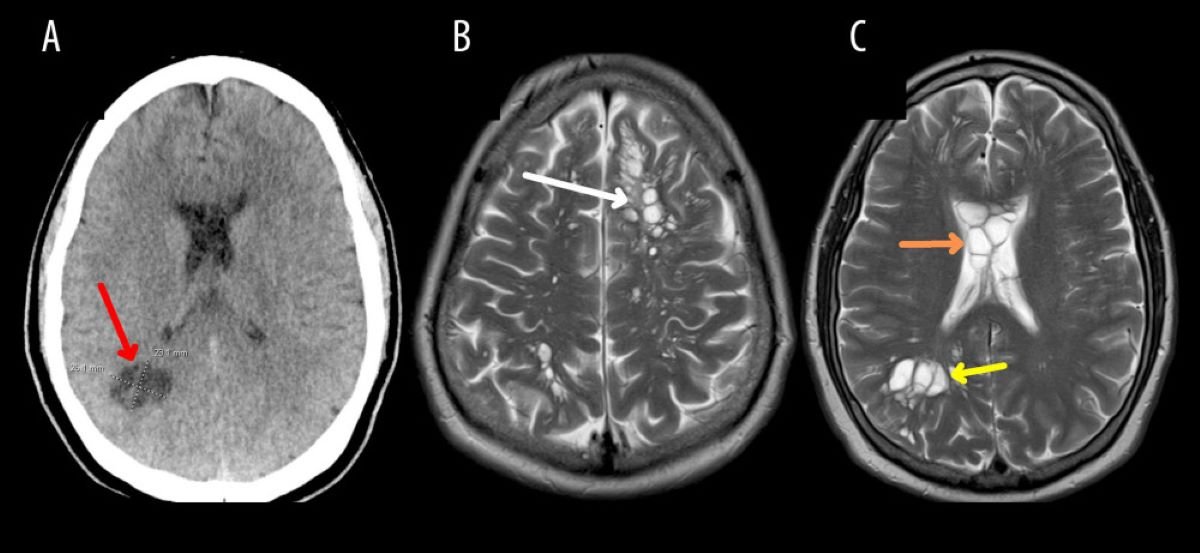A 52-year-old man in Florida has been discharged from the hospital after receiving treatment for a life-threatening tapeworm that was found in his brain. The parasite is thought to have come from eating undercooked bacon, which experts say raises wider public health concerns for the United States.
The patient had a medical history of migraines, complicated type 2 diabetes and obesity. However, over the last four months, he had begun to notice his migraines becoming "more severe" and unresponsive to his usual medication.
The patient was admitted to the hospital, and following a CT scan, an MRI, and detailed blood tests, it became clear that he was suffering from neurocysticercosis—a potentially life-threatening infection caused by the presence of larval tapeworms in the brain.
The tapeworm in question was Taenia solium, a parasite found in pigs that can spread to humans through contaminated food and water.
"Taenia Solium is not common in the United States," Mario Madruga, Orlando Health's internal medicine residency program director and one of the doctors involved in the case, told Newsweek. "It is more common in Mexico, Central America and South America. States that have frequent travelers from these areas are more likely to have cases with this infection."
However, the patient in question had no recent travel history or farm exposure to pigs. What he did have was a "habit of eating undercooked bacon."

Even so, his doctors say that eating undercooked bacon alone wouldn't have resulted in an intestinal tapeworm infection. So, how did it get into his brain?
"It can only be speculated, but given our patient's predilection for undercooked pork and benign exposure history, we favor that his [condition] was transmitted via autoinfection after improper handwashing after he had contracted [the tapeworm] himself from his eating habits," his medical team wrote in a recently published case study in the American Journal of Case Reports.
In other words, the patient had probably given himself the tapeworm from eating undercooked bacon and then accidentally ingested some of its eggs from his own feces.
The patient was given antiparasitics and an anti-inflammatory and was eventually discharged from the hospital.
"This case illustrates that neurocysticercosis should be considered when an existing neuropathological condition displays a change in presentation or requires a change in therapeutic management, even without obvious risk factors," his doctors wrote. "This presentation is nonspecific and can easily be overlooked, especially if there is an underlying known neurological condition such as migraine."
More generally, the symptoms of neurocysticercosis depend on where in the brain the tapeworm larvae settle. For example, one of the most common presentations, seen in 80 percent of cases, is seizures.
"The clinical presentation of neurocysticercosis ranges from asymptomatic to life-threatening," his doctors wrote.
Madruga added: "The headaches experienced by patients infected with this parasite are usually due to local inflammation or swelling, or increased intracranial pressure due to the infection, rather than representing a 'true' migraine. Those that may be accustomed to having migraine headaches may not be able to tell the difference in headache quality and characteristics."
Beyond highlighting the importance of seeking medical attention if you begin to experience frequent or severe headaches, the team stresses that cases like this highlight a growing public health concern in the U.S.
"It is historically very unusual to encounter infected pork in the United States, and our case may have public health implications," they said.
Madruga added: "Minimizing the risk of infection has a great deal to do with using proper hygiene and when visiting countries that have known questionable sanitation, to be very careful of the food that they ingest."
Is there a health problem that's worrying you? Let us know via health@newsweek.com. We can ask experts for advice, and your story could be featured in Newsweek.
Update 04/26/2024 at 12:30 p.m. ET: This article was updated to include comment from Mario Madruga.
Uncommon Knowledge
Newsweek is committed to challenging conventional wisdom and finding connections in the search for common ground.
Newsweek is committed to challenging conventional wisdom and finding connections in the search for common ground.
About the writer
Pandora Dewan is a Senior Science Reporter at Newsweek based in London, UK. Her focus is reporting on science, health ... Read more
To read how Newsweek uses AI as a newsroom tool, Click here.








